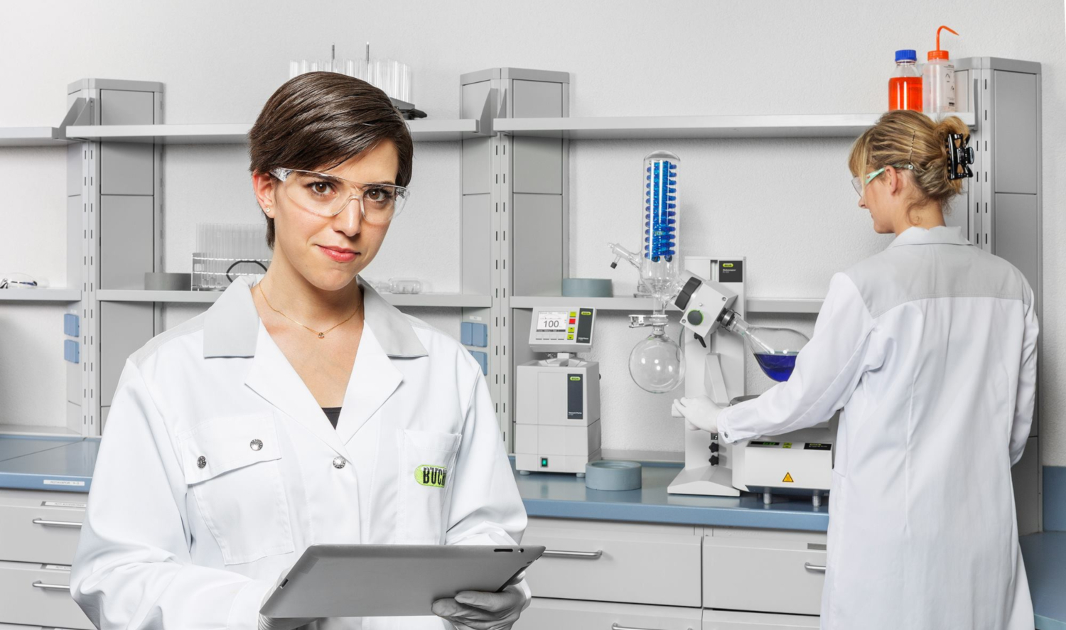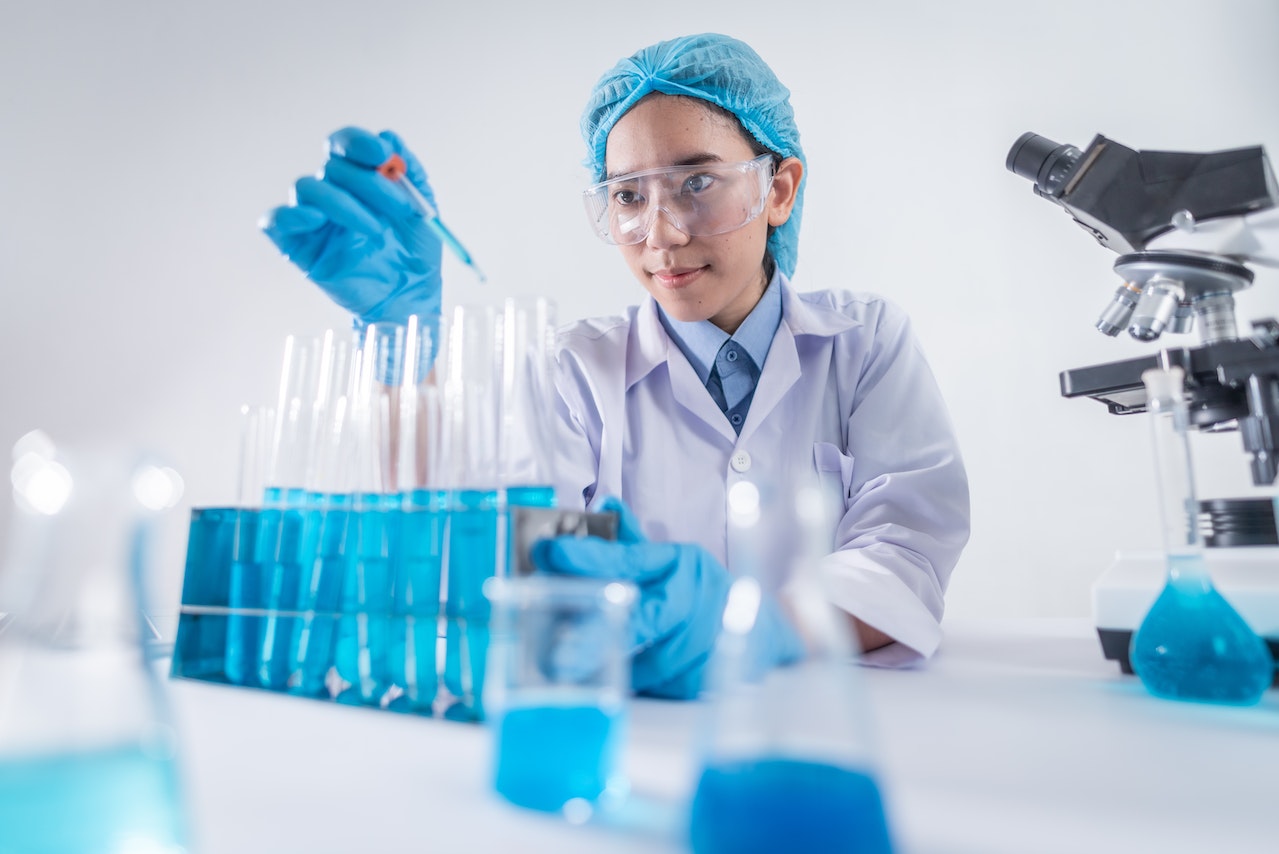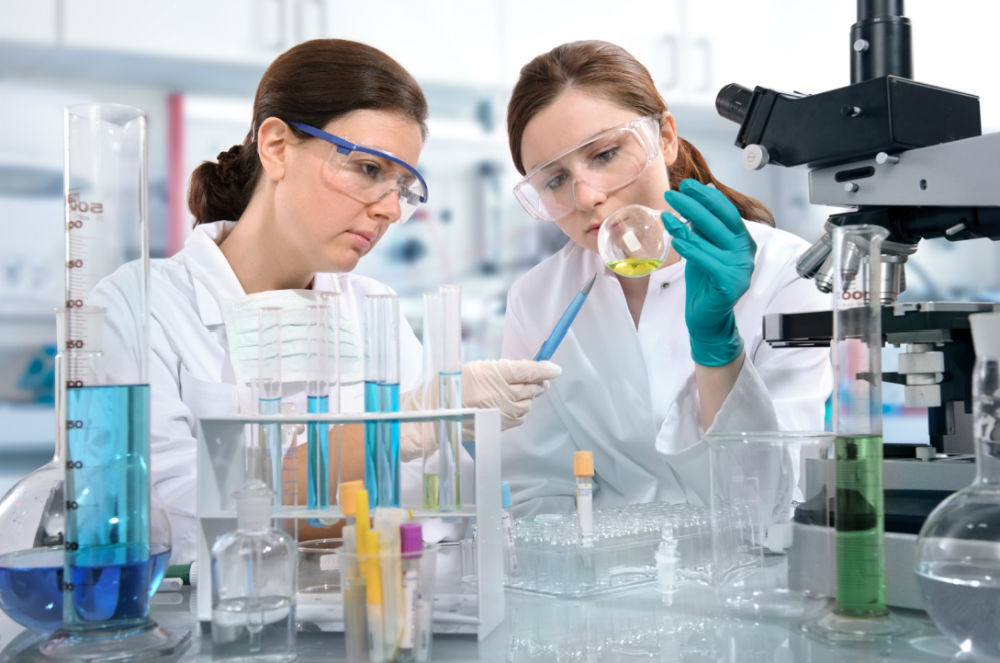In any laboratory, the availability of the right chemicals is crucial for conducting experiments, performing analyses, and achieving accurate results. From acids and bases to solvents and reagents, each chemical plays a vital role in various scientific disciplines.
Laboratory chemicals play an important role in helping scientists understand how things work in the world around us. They’re carefully handled and used following safety guidelines to ensure that experiments are conducted safely.
Why are chemicals essential in the lab?
Chemicals are indispensable tools that enable scientists to conduct experiments, analyze data, and make groundbreaking scientific advancements.
Let’s explore the reasons why laboratory chemicals are vital for laboratory operations and their important role in driving scientific progress.
Facilitating Experiments
Laboratory chemicals are the building blocks of scientific experimentation. They provide scientists with the necessary materials to conduct a wide range of tests, investigations, and analyses. Whether you’re measuring pH levels, synthesizing compounds, or testing reactions, these chemicals offer the precise and controlled environment required to obtain accurate results. Without these chemicals, scientists would face significant limitations in their ability to explore and understand the natural world.
Pharma Quality Control
Accuracy, reproducibility, and compliance are all reliable measures of drug development success, but quality and confidence play a role too. At Evolve, we’re committed to supporting pharmaceutical researchers throughout the drug development process.
The quality and purity of chemicals are extremely important in scientific research. These chemicals undergo rigorous testing and quality control measures to ensure their accuracy and reliability. By using standardised chemicals, scientists can eliminate variables that could compromise the validity of their experiments.
The precise measurements, consistency, and known properties of laboratory chemicals enable scientists to achieve reproducible and reliable results.
Enabling Specialised Research
Scientific discoveries often require the use of specialised chemicals. These unique substances are designed to fulfill specific research requirements, such as molecular biology reagents, organic synthesis intermediates, or analytical standards.
Without access to such specialised chemicals, scientists would face significant challenges in advancing their research in specialised fields.

Chemicals for every laboratory
Acids and Bases
Acids and bases are fundamental chemicals used in numerous laboratory applications. Hydrochloric acid (HCl), sulfuric acid (H2SO4), and nitric acid (HNO3) are common acids employed for pH adjustments, titrations, and chemical reactions. Sodium hydroxide (NaOH) and potassium hydroxide (KOH) are widely used bases. These chemicals are indispensable for maintaining the desired pH levels and facilitating a wide range of reactions.
Solvents
Solvents are vital for dissolving, extracting, and cleaning substances in the laboratory. Ethanol, methanol, acetone, and water are versatile solvents used in various applications. Ethanol and methanol are commonly employed for sterilization, DNA extraction, and chromatography, while acetone is suitable for cleaning glassware and removing grease. Water is an essential universal solvent used in numerous experiments and dilutions.
Reagents for Analysis
Reagents for analysis are critical for accurate testing and analysis in the laboratory. Indicators like phenolphthalein and bromothymol blue aid in determining the endpoint of titrations, while buffer solutions help maintain a stable pH during experiments. Standard solutions of known concentrations are used for calibration and quantitative analysis, ensuring precise measurements.
Salts and Inorganic Compounds
Salts and inorganic compounds serve diverse purposes in the laboratory. Sodium chloride (NaCl), potassium nitrate (KNO3), and copper sulfate (CuSO4) are commonly utilized in chemical reactions, preparation of solutions, and calibration of instruments. These compounds are essential for creating specific environments and facilitating reactions in various scientific fields.
Organic Compounds
Organic compounds find extensive use in biochemical experiments, organic synthesis, and sample preparation. Ethanol, formaldehyde, glucose, and various organic solvents like dichloromethane and hexane are indispensable for a wide range of applications, including DNA extraction, protein purification, and chromatography.
Dyes and Stains
Dyes and stains are indispensable in microscopy and histology. Methylene blue, eosin, and hematoxylin are widely used for staining cells, tissues, and biological specimens. These chemicals enhance visibility, enabling researchers to study and analyze microscopic structures effectively.
Enzymes
Enzymes play a crucial role in biochemical assays, enzymatic reactions, and protein analysis. Amylase, protease, and lipase are common enzymes employed in various laboratory applications. They catalyze specific reactions and are essential for studying biological processes and performing diagnostic tests.
Buffers
Buffers are essential for maintaining a stable pH in experiments and biological assays. Phosphate buffer, Tris buffer, and acetate buffer are commonly used to resist pH changes when working with sensitive biological samples or conducting enzymatic reactions. Buffers ensure reliable and reproducible experimental conditions.
Culture Media Components
Culture media components are necessary for the growth and cultivation of microorganisms in microbiology laboratories. Agar, peptone, yeast extract, and other additives provide the necessary nutrients for the proliferation of bacteria, fungi, and other microorganisms. These components are essential for studying microbial cultures and performing diagnostic tests.
Safety Chemicals
Safety chemicals are vital for maintaining a safe laboratory environment. Disinfectants, decontamination solutions, and spill control materials ensure proper sterilization, cleanliness, and safe handling of hazardous substances. These chemicals help prevent contamination and mitigate potential risks.

Organic and Inorganic Chemicals
Both types of these chemicals are different and have distinct characteristics. The main difference between them are:
Organic Chemicals
Organic chemicals are substances that are derived from living organisms or contain carbon atoms. Carbon is an essential element that forms the basis of organic chemistry. Examples of organic chemicals include things we use daily, such as plants, animals, food, and even our own bodies. Organic chemicals have unique properties, such as being flammable and having a wide range of smells.
Inorganic Chemicals
These chemicals do not come from living organisms and do not contain carbon atoms. Instead, they are typically found in minerals, rocks, and non-living matter. Some examples of these chemicals are salt, water, metals like iron and gold, and many types of minerals. These chemicals often have different properties than organic chemicals, such as being less likely to catch fire and having fewer smells.
How to Handle Lab Chemicals
Handling chemicals requires caution. Here are some simple guidelines for their handling.
- Wear Protective Gear: Wear appropriate protective gear, such as goggles, lab coats, and gloves, to protect your eyes, skin, and clothing from potential hazards.
- Use Proper Tools: Use the correct tools, such as beakers, test tubes, or droppers, to handle laboratory chemicals. Avoid using your hands directly unless instructed by your teacher.
- Read Labels: Before using any chemical, read the labels on the containers. The labels provide important information about the chemical, including its name, potential hazards, and how to handle it safely.
- Follow Mixing Instructions: If you need to mix chemicals, follow the instructions provided by your teacher or written on the container. Mixing chemicals without proper guidance can be dangerous.
- Pour Carefully: When pouring liquids, do it slowly and carefully. Hold the container close to the receiving container to avoid spills or splashes.
How Evolve can help
When it comes to finding the best lab supplies, Evolve stands out as a leading provider of high-quality lab chemicals, products and equipment.
Evolve offers the widest range of chemicals and standards on the planet as an official partner of Merck. We also have a comprehensive range of lab supplies to support your experiments and research projects.
FAQs
1. What are the 5 types of lab Chemicals?
There are five main kinds of chemicals. These are organic, inorganic, physical, biochemistry and analytical chemicals.
2. What are the 5 inorganic chemicals ?
Hydrogen sulfide, ammonia, all metals and some elements like calcium that have no carbon item in their structure.
3. How to handle lab chemicals?
You must take protective measures like lab clearence, use of safety gloves and goggles when handling laboratory chemicals as every chemical can include different reaction.
You might also be interested in
All the latest news, ideas and insights from Evolve
Scientific solutions for your next project
At Evolve, we’ve been supplying lab equipment, scientific products and supplies for hospitals, schools, clinics, opticians, coal mines, oil companies and other international customers for decades.
We consider it our job to do far more than just take your order, we’re here to help you. We listen, advise and solve problems.
Knowing that your time is precious, we also work fast – often being the only scientific supplier who can deliver what you need, when you need it.
At Evolve, we pride ourselves on the relationships we nurture and the consistent results we deliver. To find out how we can save you time and give you one less thing to worry about, visit our Support Centre page.


